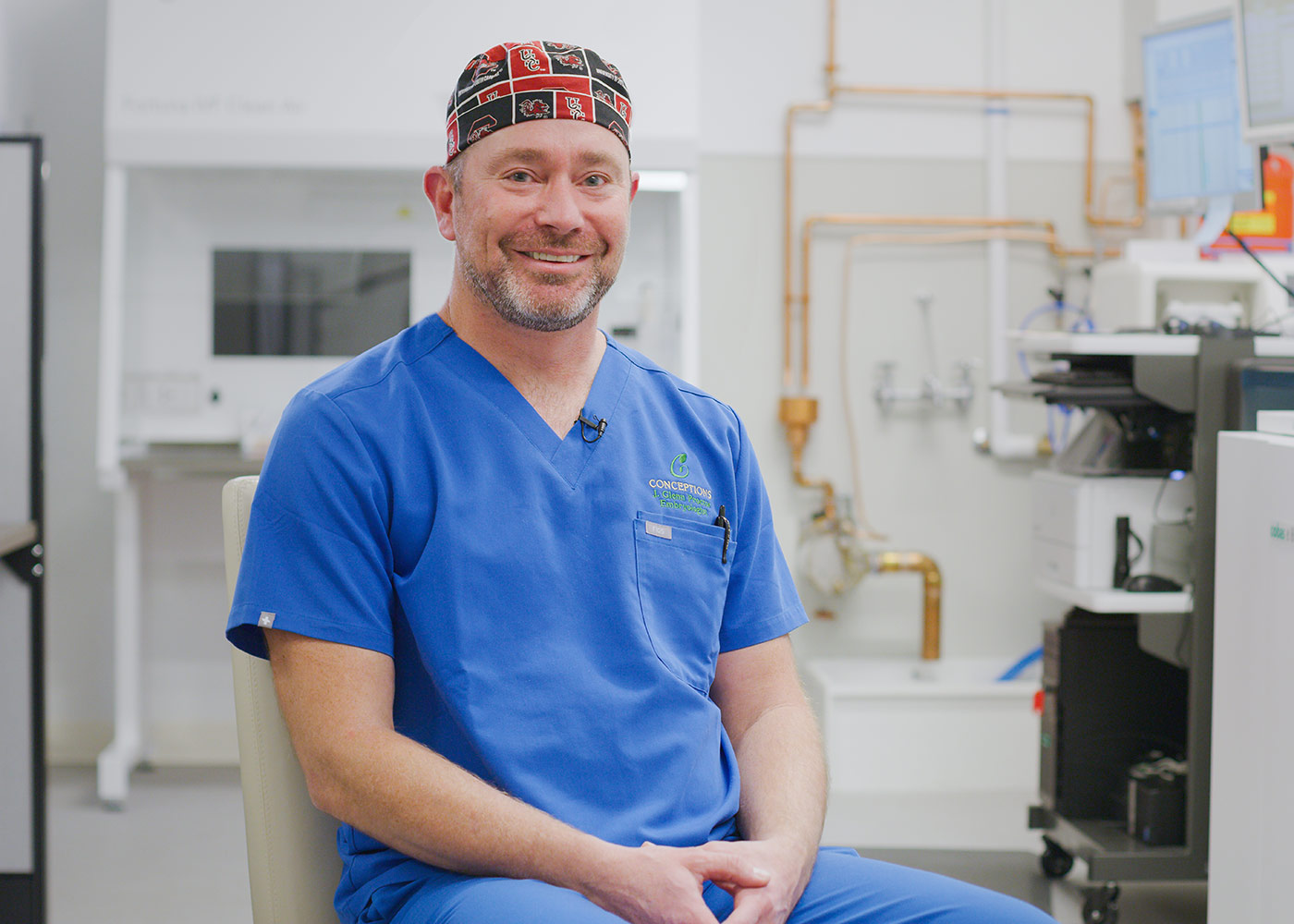Every day across Colorado women are Googling “Why should I freeze my eggs?” but we think the better question to ask is “Where should I freeze my eggs?” For over ten years, egg freezing, or fertility preservation has been an accepted treatment for women looking to put their fertility on hold until the time is right for them to have a family.
99.9% of U.S. fertility centers offer fertility preservation for elective reasons and for patients looking to freeze their eggs prior to cancer treatment. However, the processes, storage conditions, thaw rates, and subsequent fertilization rates using those eggs can vary greatly from one center to the next. Where you freeze your eggs matters as much as doing it in the first place.
We sat down with Glenn Proctor MHA, Lab Director at Conceptions here in Denver to talk about advances in egg freezing processes and why fertility preservation processes can vary a lot between fertility centers.
When did egg freezing become mainstream?
Well, it was around 2013, I think. The American Society for Reproductive Medicine (ASRM) published an opinion that fertility preservation should no longer be considered an experimental fertility service. They reviewed tens of studies across thousands of patients over many years to come to that conclusion. Conceptions had been a leader in egg freezing well before that – especially for patients recently diagnosed with cancer.
What is the freezing process in a nutshell?
In short, a patient takes injections of ovarian stimulation meds for a few days and then comes in for an egg retrieval procedure, which lasts less than 30 minutes. Those eggs are taken to the IVF laboratory where they are frozen using a process called vitrification. Vitrification essentially is a flash freeze which reduces the risk of crystallization in the egg which can damage it during the thawing process later.
What can patients expect from thaw rates?
Using vitrification, we see substantially higher survival rates when thawing frozen eggs, over 90% on average here at Conceptions in Denver. Since most of our egg-freezing patients are in the mid-30 we usually get a good number of eggs, 15-20 often. So, if we froze 20 eggs patients should expect to have at least 18 available for fertilization when the time comes. Egg quality, age, and diagnosis are factors too when it comes to thaw rates. Younger eggs are often healthier and better to freeze.
We only allow our senior embryologists to thaw eggs. We have done several studies of vitrification media used and are always looking at improving safety and success. We are a freezing site for an egg bank and have the best thaw and success rates across a few IVF centers.
So not every egg is stored, it’s really based on quality, right?
Yes, eggs are reviewed by the embryologists and only the highest quality eggs are frozen. Again, the younger the patients the higher quality those eggs tend to be and more likely to be saved. We don’t want any surprises when it comes time to thaw those eggs.
How important are storage conditions for eggs and embryos too?
Extremely important and how eggs are stored often varies dramatically from fertility center to fertility center. It is really important that patients ask about where and how their eggs are stored. At Conceptions, we use a state-of-the-art platform developed by a company called TMRW Life Sciences. They make an automated tank that offers 24/7/365 monitoring of temperature, etc. TMRW’s automated platform reduces potential points of failure by 94% compared to manual systems, providing new levels of safety, efficiency and transparency. Each egg and embryo stored has a unique barcode so we can account for what you have and where it is at any time.
How many patients have come back to use their frozen eggs so far?
So far this year we’ve had only a few patients but it’s more and more each year. Many patients have talked about freezing their eggs as an insurance policy – many employers are now offering it as a healthcare benefit, which is great. During COVID, we saw an uptick in egg-freezing cases and would expect some of those patients to come back a few years from now.
How important is having a great IVF lab to the egg-freezing process?
Couldn’t be more important. Different labs have different outcomes which you can see on the CDC or SART websites. While most labs use vitrification for egg freezing thaw rates can vary.
But perhaps more importantly, fertilization, blastulation rates, and implantation rates can be very different. Our success rates are about 15 points above the U.S. average, there are labs that have outcomes 15 points below the average. You’ve got to do your homework. Patients need to do a little forecasting when considering egg freezing because it’s not just about egg freezing it’s more about what happens a few years from now when you want to make embryos with those eggs.
About Conceptions Reproductive Associates of Colorado
For over 20 years, Conceptions Reproductive Associates of Colorado has been a pillar of success and hope for patients across Colorado and around the world with clinical outcomes that meet or exceed US benchmarks. Whether you live in Cherry Creek, Lone Tree, and Littleton, or you’re visiting us from Colorado Springs, Los Angeles, or Chicago, our team of experts has deep roots in the Colorado community and is dedicated to a safe and successful experience. Visit Conceptions today to learn more.


